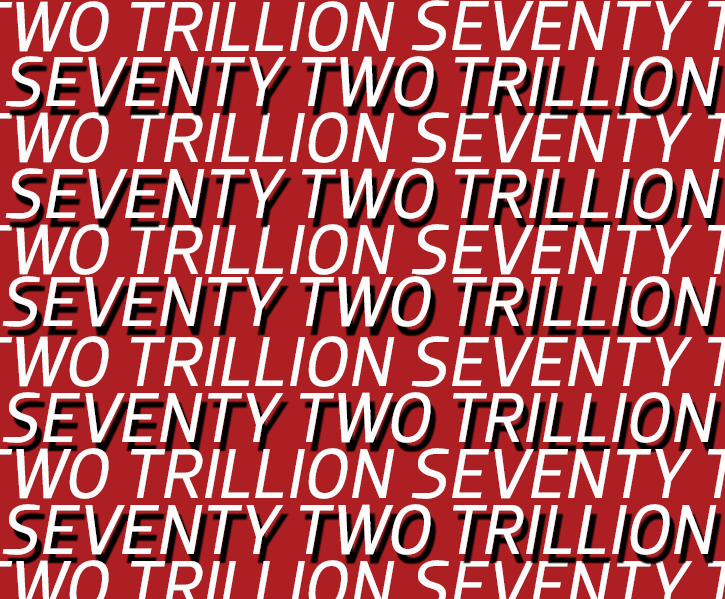SeventyTwoTrillion [he/him]
“Crises teasingly hold out the possibility of dramatic reversals only to be followed by surreal continuity as the old order cadaverously fights back.”
- 145 Posts
- 973 Comments

 39·16 天前
39·16 天前I do wonder if there’s any comparisons that can be made between Yemen and Venezuela, in terms of predicting how a conflict would go
Because on paper, Yemen is very disadvantaged compared to the US (and indeed can only get missiles through to the US navy by depleting interceptors first) but in practice has been a monumental thorn in the US’s side when trying to reassert control over the Red Sea; merely bombing Yemen hasn’t seemed to achieve much either militarily or politically, and certainly not compared to the material costs in terms of manpower and drones and interceptor missiles and the constant expensive maintenance that bombing raids require (as we all know, money itself is no object to American imperialists, but the materials and time to manufacture the weapons certainly matters)
Does Venezuela have any kind of comparable missile or mass drone production capable of engaging in gradual attrition against the US, or would such an attritional war only really arise if the US tries to put boots on the ground (or hires boots inside Venezuela) and then the socialist militias begin resistance operations? I’m assuming here that the Venezuelan air fleet would be taken out fairly quickly, and optimistically would “only” take out a ship or two before no longer being a threat (and indeed might not take out anything at all), which seems like a good assumption to me but I guess depends on what exactly Russia and China decide to do and send them.

 1·1 个月前
1·1 个月前I wrote a whole post on the actual process of this in early 2023: https://hexbear.net/post/256042

 2·1 个月前
2·1 个月前I’m sorry, but this is just the “Why don’t the Palestinian proletariat and Israeli proletariat band together against their bourgeois oppressors, Hamas and the Israeli government?” line that is so misinformed and politically dead that it reveals that the person presenting that argument either knows literally nothing about the fascist tendencies of the average settler or does and is deliberately trying to do wrecking.
There is rather little common ground between the average Ukrainian Nazi soldier and the average Russian soldier. There isn’t none, and there’s certainly more than there is between a Palestinian and an Israeli (Ukrainian soldiers defect all the time and it seems to mostly work out for them; if a Hamas member surrendered they would be, at a minimum, tortured and killed), but the Ukrainian and Russian governments do fundamentally stand for different things, and there is no viable “soldier’s uprising” that could occur against both countries that wouldn’t probably result in a much worse situation as NATO assumed control of the situation.
Putin’s greatest error was not invading sooner. Every year that went by without Russia explicitly preparing for war with Ukraine was a mistake, and only in 2022 did Putin finally begin to make the correct actions, both morally and geopolitically. He had to be dragged, kicking and screaming, into the right move. The fact that the communist parties and organizations of most developing nations are in support of Russia and oppose NATO and Ukraine is indicative, I think.

 23·2 个月前
23·2 个月前From Prashad himself:
The Nepali petty bourgeoisie, which sent their children to English medium schools, and often come from oppressed or “backward” Hindu castes are frustrated by the continual domination of upper castes and are inspired by the right-wing Hindutva petty bourgeoisie politics of India’s Uttar Pradesh, one of the states that borders Nepal. That is why there were many posters in the protests of Yogi Adityanath, a leader of India’s right-wing Bharatiya Janata Party (BJP) and the leader of the Uttar Pradesh government. This fraction of the population is also in the mood to “return” to monarchy, which is a Hindu monarchy. Several political forces back these tendencies, such as the pro-monarchy party (Rashtriya Prajatantra Party or RPP) and its broader allies (Joint Peoples’ Movement Committee – formed in March 2025 as part of the return to monarchy protests, Shiv Sena Nepal, Vishwa Hindu Mahasabha).
Since the 1990s, the Hindu Swayamsevak Sangh (HSS), the Indian RSS’s international affiliate, has quietly built shakhas (groups) and cadre since the 1990s. The HSS – along with a tentacular group of organizations such as the Shiv Sena and the RPP – has campaigned against secular policies and for a return to Hindu Raj. Rather than merely target secularism, the Hindutva bloc has focused attention on what it says is a revolving door of elites in Kathmandu that has held power ever since the monarchy was abolished in 2008. They frame their civilizational rhetoric around anti-corruption and charity, with mobilizations through Hindu festivals and through online influencers as well as selective outreach to marginalized and oppressed castes in the name of Hindu unity. This bloc, powerfully organized unlike the youth, has the capacity to seize power and to restore order in the name of the Hindu state and the monarchy, bringing back authoritarianism in the name of anti-corruption.
Obviously, I don’t know anything about the Nepalese situation firsthand, so I’m taking him at his word.

 57·2 个月前
57·2 个月前@Dessa@hexbear.net: “I am once again asking that “international” be added to the thread titles.”
Your wish is granted. Of course, US national news is still welcome when relevant, and in small doses, but this should clarify the ultimate purpose of the news mega. Or the, uh, intnews mega. Or, as I call it, the goddamn news mega.

Next thread is up!